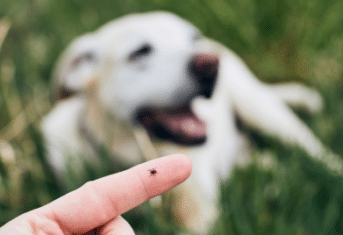Dog Park Dangers

Dog Park Dangers
Dog parks are popping up all over suburban and urban areas, and for good reason. Daily exercise helps keep your dog healthy and gives her a chance to get out and socialize with other dogs and humans. In urban areas, dog parks provide a safe space for daily doggie exercise, but recent research suggests dog parks may not be as safe as we might think.
Parasites
A recent study of dog feces collected from Colorado dogs suggests gastrointestinal parasites may be on the list of dog park dangers. Two intestinal protozoa, Giardia and Cryptosporidium, were found more commonly in dogs frequenting dog parks than in dogs that did not. These two organisms are not controlled by heartworm preventatives as are hookworms and roundworms. Identification of these critters is one reason for your veterinarian’s recommendation of an annual fecal examination for your pet.
Infectious disease
A coughing dog visiting a dog park may be a dog park danger, if he is infected with the bacteria causing kennel cough or the virus causing canine influenza. These two infectious diseases are easily spread between dogs in a dog park and are characterized by non-stop coughing. Parvovirus infection is another infectious disease readily transmitted to a healthy dog when it comes in contact with the feces of an infected dog. The good news is vaccinations are available to prevent these diseases and diligent pooper scooping is critical to prevent transmission of parvovirus as well as intestinal parasites in dog parks.
Dog bites
I anticipated dog bites or other injuries related to aggression would be common in dog parks, but a 2003 publication reported on 72 hours of dog park observations and found little evidence to support my theory of dog to dog aggression as a major problem in dog parks. The authors hypothesize dog owners with aggressive dogs avoid dog parks because they recognize the danger their dog poses to others.
Dog parks danger for other animals
A study of California sea lion strandings showed leptospirosis (a waterborne infectious disease) was more likely to occur in sea lions found in areas with a high density of dog parks. The authors of the study suggest exposure to dogs in dog parks may be in some way associated with the infection in sea lions. Leptospirosis is a life-threatening disease of the kidneys and liver. Dogs, humans, and possibly even cats can be infected, usually through urine-contaminated water. Dog owners should ask their veterinarian if leptospirosis is a concern in their neighborhood and should consider having their dog vaccinated against this disease.
If you live in New York City, a list of dog parks by borough can be found here.
Be sure to tell your veterinarian if your dog plays in dog parks as this information will help direct your dog’s preventive healthcare plan.
































